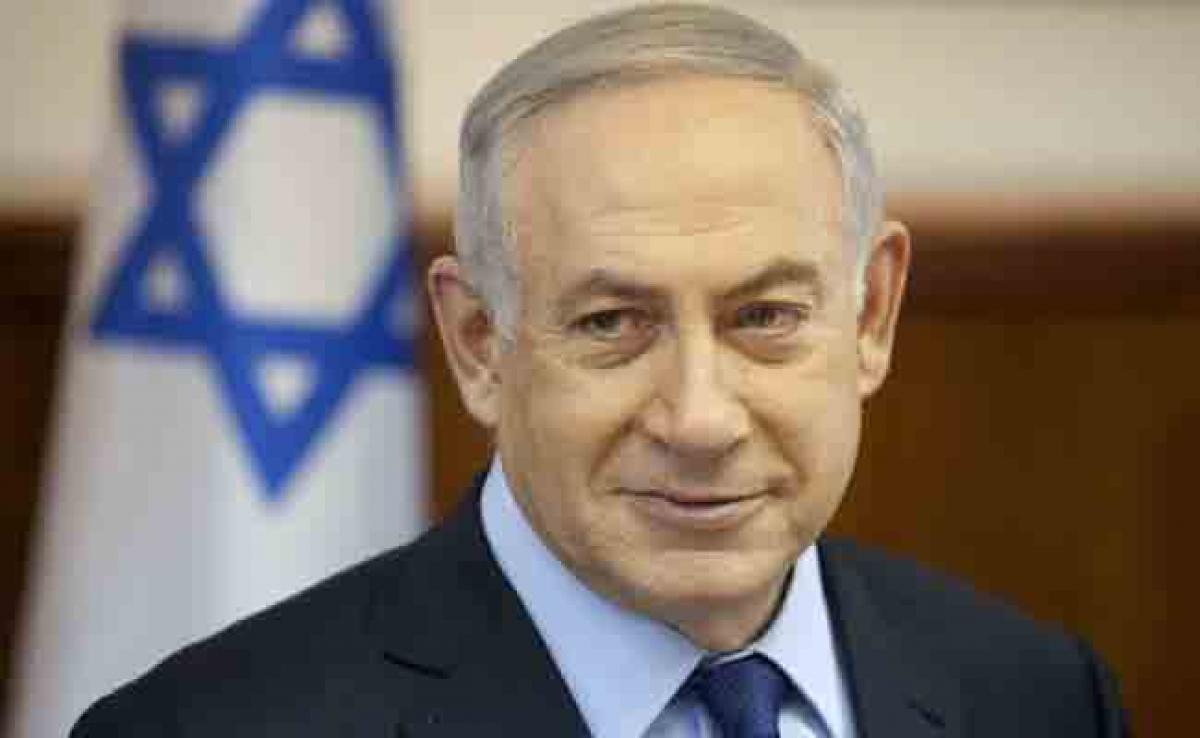Live
- ‘Get Set, Grow Summit 2024’ Focuses on Digital Detox for Families
- Stokes motivates his team to put in extra effort, says England pacer Potts
- From overcoming setbacks to leading India in U19 Women’s Asia Cup, Niki Prasad's amazing journey
- Driving Enterprise Security: Inside Venkata Reddy Thummala’s Leadership Journey
- Constitution debate: PM Modi hails 'Nari Shakti'; makes strong pitch for 'United Bharat’
- Abhijeet Bhardwaj: Revolutionizing Enterprise Analytics with Innovation and Expertise
- Bihar: Inquiry initiated against principal who went to buy veggies during school hours
- Press Sri Lankan Prez for release of Indian fishermen: TN Cong MP to EAM Jaishankar
- TN: DMK postpones executive meet due to heavy rains & Parliament session
- Porous silicon oxide electrodes can fix durability issues in batteries: Researchers
Just In

Egypt\'s foreign minister met Israeli Prime Minister Benjamin Netanyahu on Sunday on reviving peace efforts with the Palestinians, the first such visit in nearly a decade and the latest sign of warming ties.
Egypt's foreign minister met Israeli Prime Minister Benjamin Netanyahu on Sunday on reviving peace efforts with the Palestinians, the first such visit in nearly a decade and the latest sign of warming ties.
The trip came amid talk of renewing an Arab peace initiative and with Israel's military having recently saluted "unprecedented" intelligence cooperation with Egypt to combat the Islamic State group.
Speaking to journalists alongside Netanyahu before their meeting, Foreign Minister Sameh Shoukry said it was a "crucial and challenging juncture for the Middle East".
Resolving the decades-old Israeli-Palestinian conflict would have a "far-reaching and dramatic and positive impact on the overall conditions of the Middle East region", he said.
"Egypt remains ready to contribute toward achieving this goal."
Shoukry also warned of the "constant deterioration" of the situation on the ground since the last round of Israeli-Palestinian peace talks collapsed in April 2014.
He said the current lack of process towards peace was "neither stable nor sustainable", and stressed the need for "serious steps to build confidence" toward the two-state vision.
Netanyahu welcomed Egyptian President Abdel Fattah al-Sisi's "recent offer of Egyptian leadership and efforts to advance peace with the Palestinians and a broader peace in our region".
He also called on Palestinians to engage in direct negotiations, as he has repeatedly done in the past.
'Real Opportunity' For Peace'
An Israeli official said that during the meeting, Netanyahu asked for Egypt's help in returning the bodies of two Israeli soldiers held by Hamas in Gaza, as well as two Israeli civilians detained by the Islamist movement in the Palestinian enclave.
Shoukry responded in the affirmative, the official said.
Netanyahu and his wife Sara later hosted the Egyptian foreign minister for dinner at their Jerusalem residence.
Palestinian leaders say years of talks with Israel have not ended the occupation, and have instead pursued international diplomacy to promote their cause.
On June 29, Shoukry met Palestinian leaders during a visit to the West Bank city of Ramallah.
Sisi said in May there was a "real opportunity" for an Israeli-Palestinian deal that could lead to warmer ties between his country and Israel.
In 1979, Egypt was the first Arab state to sign a peace treaty with Israel after years of conflict, and it remains an influential player in the region.
However, ties have been formally cold over Israel's policies toward the Palestinians, and relations further soured after the June 2012 election of the Muslim Brotherhood's Mohamed Morsi as Egyptian president.
After president Hosni Mubarak's ouster in the 2011 revolution, protesters stormed Israel's embassy in September that year amid clashes with police.
Morsi was ousted in July 2013 by then army chief Sisi, who was elected Egypt's president in 2014.
In June, representatives from 28 Arab and Western countries, the Arab League, European Union and the United Nations met in Paris to discuss ways to help advance peace efforts.
Israel strongly opposes that initiative, which is being promoted by France.
Netanyahu has at the same time spoken of reviving a long-dormant Arab peace initiative dating to 2002.
That proposal essentially calls for Israel to withdraw from the occupied territories and resolve the issue of refugees with the Palestinians, leading to the creation of a Palestinian state, in exchange for normalised relations with Arab countries.
'Existential Threat'
But some analysts have questioned whether Netanyahu's comments were an attempt to fend off international critics over his appointment of hardline Defence Minister Avigdor Lieberman and his opposition to the French plan.
Netanyahu has said he would seek changes to the Arab proposal. The Arab League has said the terms cannot be changed.
There have been repeated warnings that Israeli settlement building and Palestinian attacks are eroding the possibility of a two-state solution, especially with peace efforts at a standstill since April 2014.
Violence since October has killed at least 214 Palestinians, 34 Israelis, two Americans, an Eritrean and a Sudanese.
Most of the Palestinians killed were carrying out knife, gun or car-ramming attacks, according to Israeli authorities.
Others were shot dead during protests and clashes, while some were killed by Israeli air strikes in the Gaza Strip.
Egypt and Israel have cooperated in other areas, particularly after jihadists in Egypt's Sinai Peninsula pledged allegiance in November 2014 to the Islamic State group.
In April, Israel's deputy chief of staff spoke of an "unprecedented level of cooperation" with Egypt, mainly regarding intelligence.
Shoukry said the situation in the Middle East was "becoming ever more volatile and dangerous, particularly as the phenomenon of terrorism continues to grow and proliferate, representing an existential threat to the peoples of the region and the world at large".

© 2024 Hyderabad Media House Limited/The Hans India. All rights reserved. Powered by hocalwire.com







